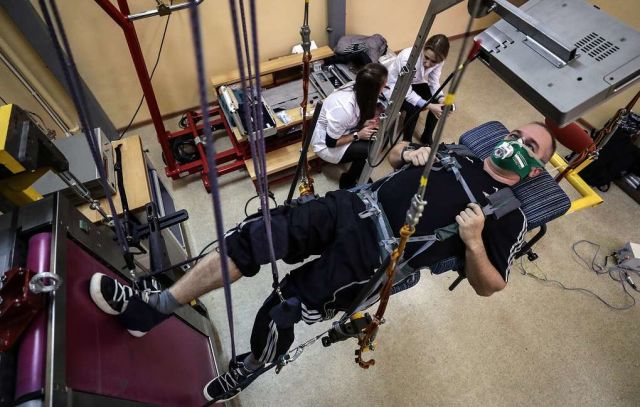Now people with fractures and poor eyesight can fly into space
Moscow. December 25. INTERFAX - Medical requirements for participants of short-term space flights have decreased significantly in recent years, the deputy director of the Institute of Biomedical Problems (IMBP) told reporters RAN Oleg Kotov.
"The requirements for certain chronic diseases have become more loyal, the requirements for diseases in the anamnesis. Previously, a person should not have been ill in any way and not have any injuries and fractures, now it's easier with this. Ophthalmology has become much simpler, and no one is surprised by the flight of a person with glasses or with correction," Kotov said, answering a question from Interfax.
At the same time, he stressed that the reduction in requirements primarily concerns participants in short-term flights, and not professional astronauts going on long expeditions to the ISS.
On December 20, the Soyuz MS-20 spacecraft returned from the ISS, on which it was visited by space tourists from Japan. Earlier in October, the ISS was visited by director Klim Shipenko and actress Yulia Peresild, who conducted the filming of the film "Challenge" in orbit.
On December 20, the descent vehicle of the Soyuz MS-20 manned spacecraft landed. Maezawa, Hirano and Russian cosmonaut Alexander Misurkin returned to Earth after a 12-day flight to the ISS.
In November 2019, the head of Roscosmos announced that the state corporation had ordered the production of two additional Soyuz rockets for commercial launches from RSC Energia. It was reported that the "tourist" version of the ship will be redesigned to be controlled by one person.
In December 2019, it became known that the cost of the Soyuz-MS spacecraft flight for space tourists would amount to 2.5 billion rubles. This amount was mentioned in the documentation of the developer of the ship - RSC Energia.
Russia is a pioneer of space tourism. In the period from 2001 to 2021, nine commercial flight participants went into orbit on Soyuz spacecraft, one of them twice. Roscosmos and Space Adventure have been cooperating in the field of space tourism since 2001, when the first space tourist Denis Tito flew into orbit.

